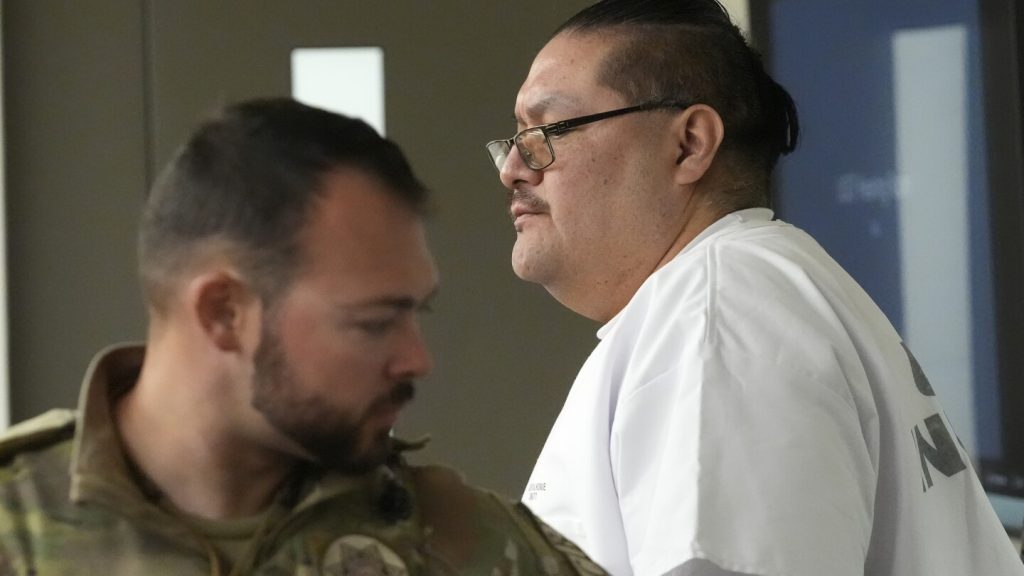Utah officials have denied clemency for Taberon Dave Honie, who is set to be executed for the stabbing death of his girlfriend’s mother in 1998. The decision was announced by the Utah Board of Pardons and Parole, stating that there was not sufficient cause to commute Honie’s death sentence. Despite Honie’s plea to have his sentence commuted to life in prison, the board ruled against it. His attorneys expressed disappointment, but acknowledged his sincere remorse and acceptance of responsibility for the crime.
Family members of the victim, Claudia Benn, urged the parole board to allow Honie to be executed, describing Benn as a pillar in their family and community. Honie had a turbulent relationship with Benn’s daughter and broke into her home, where he fatally attacked Benn. He was convicted of aggravated murder in 1999, with one of the aggravating factors being the sexual abuse of one of the children present at the time of the crime. The decision to deny clemency was met with mixed emotions from Benn’s family, bringing closure and justice after 26 years of waiting.
Despite Honie’s traumatic childhood and struggles with substance abuse, the state argued that he created more trauma by killing Benn. Honie’s attorneys presented testimony detailing his upbringing on the Hopi Indian Reservation and the neglect he faced from his parents. However, the Assistant Solicitor General highlighted the intergenerational impact of Honie’s actions, emphasizing the need for justice. Utah has not had an execution since 2010, and Honie is one of six people awaiting execution in the state.
The case has sparked discussions about the use of lethal injection and the ethical implications of capital punishment. Honie’s attorneys raised concerns about the planned combination of drugs for the execution, prompting corrections officials to agree to switch to pentobarbital. Despite the uncertainty surrounding the execution plan, Honie’s execution warrant was signed in June. The state’s decision to move forward with the execution has reignited the debate on the death penalty and its application in modern society.
The parole board’s decision has brought closure to the victim’s family, allowing them to focus on healing after years of pain and waiting for justice. While Honie’s attorneys continue to advocate for a different outcome, the impending execution has raised questions about the effectiveness and fairness of the criminal justice system. As the date of execution approaches, emotions are running high on both sides, reflecting the complex nature of capital punishment and its lasting impact on individuals and communities. Whether Honie’s execution will bring solace or further pain remains to be seen, but it has sparked important conversations about forgiveness, redemption, and the true meaning of justice.


